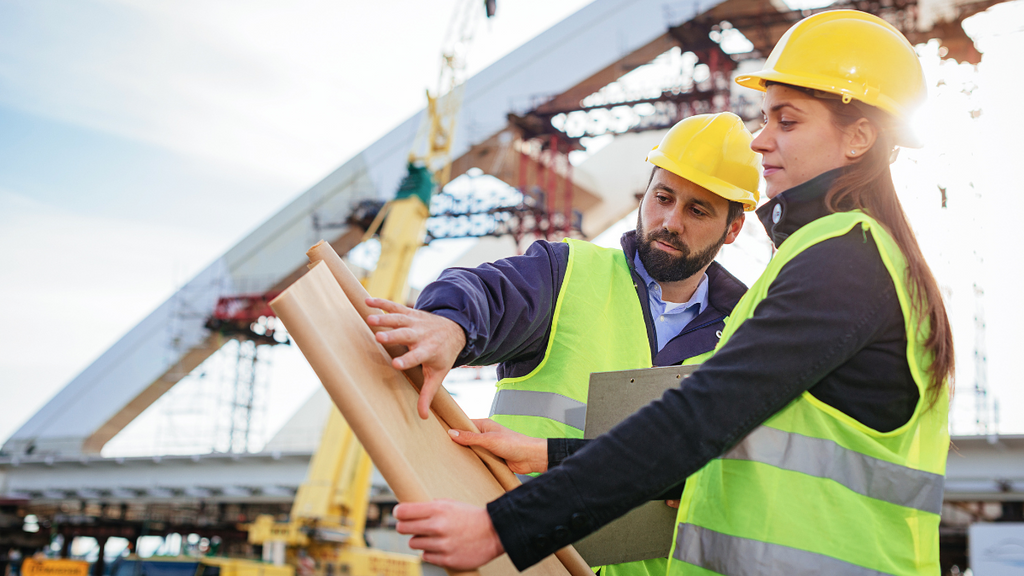Geotheta Things To Know Before You Buy
Geotheta Things To Know Before You Buy
Blog Article
The Geotheta PDFs
Table of ContentsGeotheta Fundamentals ExplainedGeotheta Can Be Fun For EveryoneSome Known Details About Geotheta The Best Strategy To Use For GeothetaThe smart Trick of Geotheta That Nobody is Talking About

They perform website investigations, collect samples, do research laboratory tests, and evaluate data to examine the viability of the ground for building and construction projects - Geo Tech Engineering. Based upon their findings, geotechnical engineers provide recommendations for foundation style, slope stability, preserving frameworks, and reduction of geotechnical threats. They collaborate with various other experts, such as engineers, architectural designers, and building and construction groups, to guarantee that geotechnical factors to consider are incorporated right into the overall project design and implementation
By evaluating the habits and buildings of dirt and rock, they can recognize possible geotechnical dangers such as landslides, soil settlement, or slope instability. Their knowledge assists protect against failings or crashes that could endanger lives and property. Below are some thorough duties and responsibilities of a geotechnical engineer: Site Examination: Geotechnical designers conduct website examinations to collect information on subsurface conditions.
They interpret the data to recognize the residential or commercial properties and habits of the dirt and rock, including their strength, permeability, compaction attributes, and groundwater problems. Geotechnical Evaluation and Design: Geotechnical engineers evaluate the information collected during website examinations to examine the stability and suitability of the site for construction jobs. They execute geotechnical estimations and modeling to review factors such as birthing ability, negotiation, slope stability, lateral planet pressures, and groundwater circulation.
Things about Geotheta
Foundation Layout: Geotechnical engineers play a vital role in making structures that can securely support the desired structure. They assess the dirt conditions and lots requirements to establish the proper foundation type, such as superficial foundations (e.g., grounds), deep foundations (e.g (https://gravatar.com/exactlypainterdeb7b76e1a)., piles), or specialized methods like soil improvement. They take into consideration factors such as settlement restrictions, birthing capability, and soil-structure interaction to develop optimal foundation layouts
They assess construction plans, screen website tasks, and conduct field assessments to verify that the layout referrals are complied with. If unpredicted geotechnical concerns develop, they examine the scenario and provide referrals for removal or adjustments to the design. Risk Analysis and Mitigation: Geotechnical engineers evaluate geotechnical risks and risks linked with the task site, such as landslides, liquefaction, or dirt erosion.

Cooperation and Interaction: Geotechnical engineers function carefully with various other professionals associated with a job, such as architects, architectural engineers, and construction groups. Effective communication and collaboration are important to integrate geotechnical factors to consider into the overall project style and construction procedure. Geotechnical engineers supply technical know-how, answer questions, and make certain that geotechnical demands are met.
Not known Incorrect Statements About Geotheta
Here are some kinds of geotechnical engineers: Foundation Engineer: Structure engineers focus on designing and analyzing foundations for structures. They examine the dirt problems, tons requirements, and site characteristics to identify the most proper structure type and layout, such as superficial foundations, deep structures, or specialized methods blog like pile structures.
They review the variables affecting incline security, such as soil residential or commercial properties, groundwater conditions, and incline geometry, and establish strategies to avoid incline failures and alleviate risks. Earthquake Designer: Earthquake engineers concentrate on examining and developing frameworks to endure seismic pressures. They assess the seismic risk of a website, examine soil liquefaction capacity, and develop seismic style standards to make certain the safety and security and resilience of structures during earthquakes.
They execute field testing, collect examples, and examine the accumulated information to define the soil homes, geologic formations, and groundwater problems at a website. Geotechnical Instrumentation Engineer: Geotechnical instrumentation designers concentrate on surveillance and measuring the habits of dirt, rock, and frameworks. They mount and maintain instrumentation systems that keep track of factors such as soil negotiation, groundwater degrees, slope movements, and architectural variations to examine performance and give early cautions of prospective concerns.
The Basic Principles Of Geotheta
They carry out examinations such as triaxial examinations, combination examinations, direct shear tests, and permeability examinations to gather information for geotechnical analysis and design. Geosynthetics Designer: Geosynthetics engineers focus on the design and application of geosynthetic materials, such as geotextiles, geogrids, and geomembranes. They use these products to boost dirt stability, reinforce slopes, give drain options, and control erosion.
They tend to be investigative individuals, which suggests they're intellectual, reflective, and analytical. They are interested, methodical, reasonable, logical, and sensible. Some of them are additionally social, suggesting they're kind, charitable, cooperative, person, caring, useful, understanding, tactful, and friendly - Consulting Engineer.
In the office setting, geotechnical designers use specialized software program tools to carry out estimations, create designs, and examine data. They prepare records, evaluation project specifications, interact with customers and staff member, and coordinate task activities. The office setup provides a helpful setting for research, analysis, and partnership with other specialists associated with the task.
Getting My Geotheta To Work
They often visit project websites to conduct website examinations, evaluate geotechnical problems, and collect information for analysis. These gos to entail traveling to various places, in some cases in remote or tough surfaces. Geotechnical designers may execute soil sampling, conduct examinations, and monitor building tasks to guarantee that the geotechnical facets of the project are being carried out correctly.
Geotechnical designers additionally function in specialized geotechnical laboratories. Geotechnical lab designers function thoroughly in these atmospheres, taking care of screening tools, running tools, and videotaping information.
Report this page